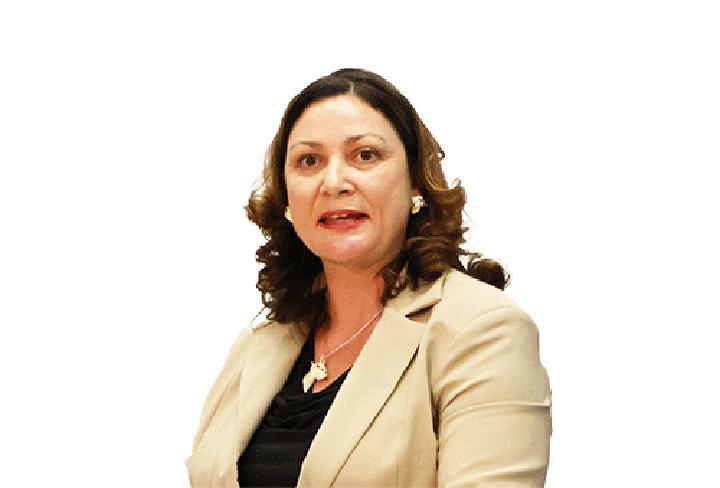Africa-Press – Namibia. A perception that specialising in indigenous languages lacks economic value has been engrained into the minds of most students.
This is one of the key reasons why students shun indigenous languages when pursuing careers in the education profession.
This was said by Cynthy Haihambo-Ya-Otto, an associate professor in the Department of Applied Education Sciences at the University of Namibia (Unam). “Many students and their families believe English offers greater opportunities for upward mobility,” Haihambo-Ya-Otto said in an interview with New Era this week.
She added: “Additionally, historical marginalisation and stigma associated with some languages discourage the youth from pursuing them. If learners associate their language with bullying, social exclusion, or inferiority, they are unlikely to embrace it in higher education.”
The academic also highlighted the limited training programmes for indigenous language teachers, low enthusiasm from schools, parents and some educators for mother tongue instruction, and a general societal preference for English due to its perceived economic and global advantages, as some of the challenges student teachers meet.
Challenges
She also cited a shortage of lecturers with advanced qualifications in indigenous languages and limited incentives or structured pathways for teachers to upskill in these fields.
“Namibia’s rich linguistic and cultural diversity should be a cornerstone of its education,” she said.
“Yet the persistent lack of trained educators for languages such as Khoekhoegowab, Setswana and Afrikaans threatens the full implementation of the 2016 Language Policy for Schools, which advocates mother tongue instruction during the first three years of formal education,” she said.
Haihambo-Ya-Otto stressed that the shortage of indigenous language teachers not only hampers the execution of this policy but also risks marginalising the cultures and identities tied to these languages. While implementation may be more feasible in relatively homogenous rural communities, towns and peri-urban areas face complexities due to internal migration and linguistic diversity.
“Without qualified teachers, pupils have limited exposure to their mother tongue as a subject. This results in fewer students pursuing these languages at tertiary level and, consequently, fewer graduates returning to teach them,” she added.
This comes hot on the heels of an outcry by education minister Sanet Steenkamp that there is a shortage of indigenous language teachers in Namibian schools.
Steenkamp said the ministry is facing a crisis in recruiting qualified teachers for languages such as Khoekhoegowab, Setswana and Afrikaans. This has raised broader concerns about the marginalisation of indigenous languages within the national education system.
Statistics
Delving into numbers, Unam spokesperson Simon Namesho said 722 students are currently pursuing careers in language education at the institution. Of these, 12 students are majoring in Setswana, 204 in Khoekhoegowab and 506 in Afrikaans.
As part of efforts to reverse the trend, Haihambo-Ya-Otto said both policy and perception must be addressed.
“We need awareness campaigns, inclusive curricula, and positive role models,” she said.
The professor acknowledged that some institutional efforts have been made. Namibia’s language policy recognises 16 languages for instruction and promotes bilingual education. Furthermore, Unam’s Faculty of Education and Human Sciences offers programmes allowing students to major in local languages, including Khoekhoegowab and Setswana.
“There have been commendable initiatives such as school visits, adjusted entry requirements, and targeted recruitment, but they remain limited in scope and sustainability,” she said.
Additionally, a 2012–2014 study by the university called for targeted interventions to address these shortages. While some successes have been recorded, including impactful graduates, dropout rates and systemic gaps show that more comprehensive, sustained efforts are needed, she noted.
Recommendations
It is, however, not doom and gloom, as more can be done to arrest the situation. Haihambo-Ya-Otto recommended a series of strategic interventions that includes targeted scholarships and bursaries for students pursuing indigenous language education and support and career development pathways for in-service teachers specialising in local languages.
She also mooted investment in culturally relevant teaching and learning materials in indigenous languages, as well as public campaigns to promote local languages as integral to national identity.
Educational inclusion to motivate students to specialise in local languages is another solution.
Dubbed ‘Namibia education godfather’, founding education minister Nahas Angula and former parliamentarian Elma Dienda have also added their voices to the call for stronger implementation of the national language policy.
They advocate the integration of all indigenous languages into Namibia’s schools.
Dienda, a teacher by profession, said the government must move beyond rhetoric and take action. “Currently, it’s only a policy in name; nothing adheres to it. With English as the medium of instruction in Namibia, many perceive speaking their native language as an insult or disgrace,” Dienda observed.
She criticised both the education sector and families for failing to promote local languages, believing that English offers a greater advantage. She also highlighted the severe lack of study materials developed for teaching indigenous languages.
Dienda called for mother tongue instruction to be made compulsory from Grade zero to Grade 3, in line with the language policy. She also urged the development of educational materials for all indigenous languages and the provision of bursaries to students wishing to specialise in language teaching.
Angula proposed that the government explores regional cooperation to strengthen language instruction. “We can source expertise on vernaculars such as Setswana and Afrikaans from Botswana and South Africa. That can be done,” Angula said.
For More News And Analysis About Namibia Follow Africa-Press






